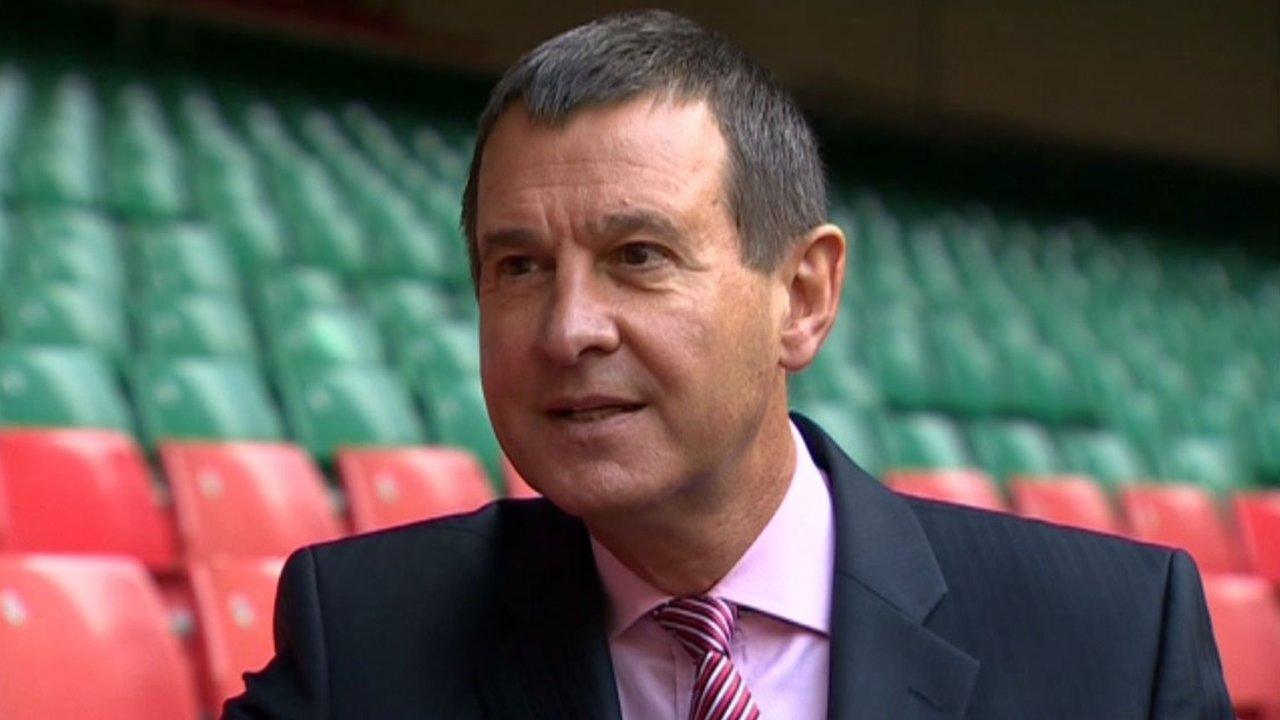Analysis: WRU's Roger Lewis also leads Cardiff's vision
- Published
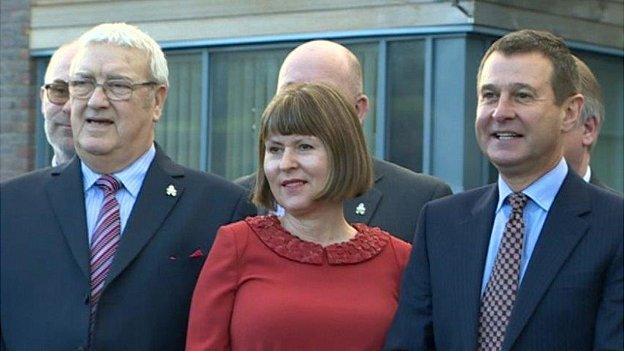
A different team - Roger Lewis (right) leading the Cardiff Capital Region Board
While he has overseen two Grand Slams on the pitch during his reign at the Welsh Rugby Union, Roger Lewis has been involved in building a team to compete with some of the UK's strongest economic players.
In November 2013, he was appointed chairman of the Cardiff Capital Region advisory board - covering 10 local authority areas - and earlier this month it published its vision for the future.
It was two years after the economy minister set up a group under former CBI Wales chief Dr Elizabeth Haywood to gather evidence from business, academics and councils as to whether a regional approach would boost investment and job creation.
Already chief executive at the WRU, Lewis was installed to head up the new region and establish a way forward.
The Powering The Welsh Economy report, external is its first statement of intent, running to 41 pages. It describes transport - in particular the £20bn Metro network - as a priority for getting the region moving.
It would link Maesteg and Porthcawl in the west of the region to Abergavenny and Chepstow in the east. Lewis said he hoped the project would attract hundreds of millions of pounds from the European Union.
I talked to him about what he saw as the next steps for the region and he said it needed strong leadership, agreed vision, power and cross-party agreement. It was also about bringing together the strands of the other city partnerships Cardiff was building.
Economy Minister Edwina Hart now has the document and it will now be up to the Welsh government to decide how much power the City region will have and to set a budget.
Mrs Hart is expected to outline what happens next within a few weeks.

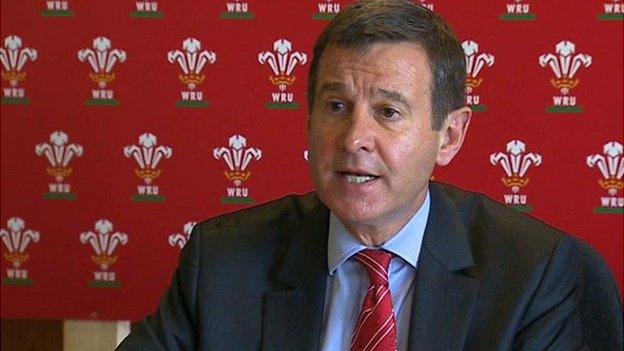
Fact file: Roger Lewis
Born 24 August 1954, aged 60
Grew up in Cefn Cribwr, Bridgend, and attended Cynffig Comprehensive, Kenfig Hill.
1976: Graduated in music at Nottingham University
1976-1980: Worked as a musician, including with the Avon Touring Theatre and as a pianist with the Scottish Ballet
1981-1985: Presenter at Radio Tees in the north east and producer at Capital Radio, London
1985-1990: Producer at BBC Radio 1 and head of the Radio 1's music department
1990-1998: Managing director at EMI Records and worldwide president of Decca Records
1998-2004: Managing director and programme controller of Classic FM and a director of GWR plc
2004: Managing director of ITV Wales
2006: Chief executive of the WRU and the Millennium Stadium. He represents the WRU on the boards of the British and Irish Lions, Celtic Rugby Ltd and the Council of the Six Nations
2010-11: Also chaired the cross-party Yes Campaign in the referendum in Wales
2013: Chairman of the Cardiff Capital Region board
Other positions: Vice president of London Welsh Male Voice Choir, chairman of the Royal Liverpool Philharmonic and chairman of the Ogmore Education Centre Trust
Interests: Music, rugby, walking, skiing, sea-kayaking, member of the Wine Society

Chairman Roger Lewis explained what is needed for the region
The workings of Cardiff Bay must seem a world away from those inside Welsh rugby. Lewis's leadership of the WRU has been controversial.
In what will now be his penultimate summary to a WRU annual report, external, he hinted last October at a particularly bruising period off the field.
It had been a "year of exceptional highs and lows" with financial success balanced against "protracted negotiations" with the four rugby regions and "overshadowed" by public and media comment which had "often strived to obscure our focus and our successes".
David Moffet, his predecessor at the WRU, has criticised Lewis's business strategy of driving down bank debts.
In July 2010, Lewis announced a new financial package had been arranged with Barclays Corporate to fast-track repayments of debts of more than £60m which were part of the building of the Millennium Stadium.
His aim was to pay off the loan by 2021.
But Moffet criticised that strategy and said Lewis's priorities were reducing the debt rather than investing in the game. He calls it a "disaster" for Welsh rugby.
Lewis would obviously disagree. He says he will leave the WRU "in a strong position to seize the opportunities".
It is not yet known how much power or money the Cardiff Capital Region will have when it becomes more than an advisory body. Nor is it known when a leader will be chosen. Or whether Lewis would be interested or considered for such a post.
- Attribution
- Published24 February 2015
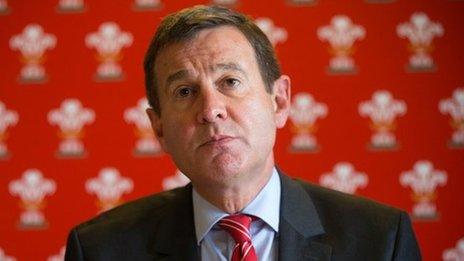
- Attribution
- Published28 August 2014
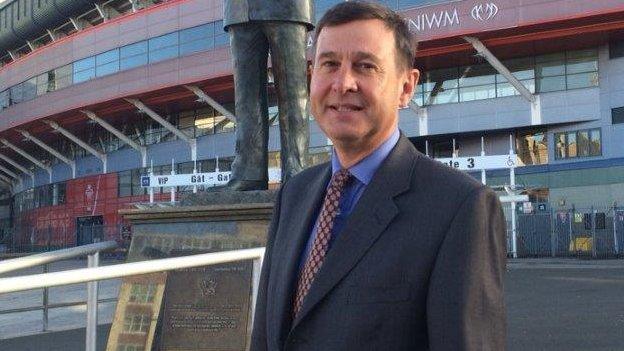
- Published19 November 2013
